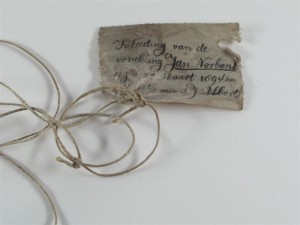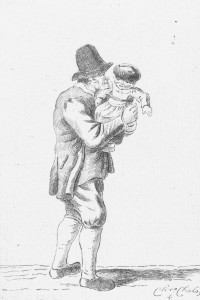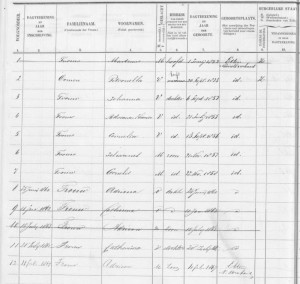When you hit a brick wall, it might be worthwhile to look at all the names in the family. Can you account for all the names of the children? Could one of them be named after a grandparent or former spouse? Last names can provide clues about a place of origin. Different suffixes in surnames point to different regions. A matching name does not amount to prove, but it is evidence we can use to guide our research and can help to build our case. See this article about Naming patterns for … [Read more...]
Quick tip – Who Else had that Rare Name?
As you probably know, Dutch children were usually named after family members. If one of your brick wall ancestors had an unusual name, or gave one of their children an unusual name, it might be worthwhile to look who else in the community shared that name. You can then investigate that person's family to see if your brick wall ancestors fits in somehow. The other person could well be a grandparent, aunt, uncle, godparent, but could also be the landlord. They may have left records of their own … [Read more...]
Quick tip – Naming Traditions May Vary
Many genealogists know that Dutch children were usually named after their grandparents. But the order in which children were named can vary between regions, religions and also in different periods. In some cases, the maternal grandmother took precedence over the paternal grandmother. Also, parents sometimes only named children after deceased family members. For example, in the eastern part of Gelderland I found that in the 1600s, most families only named children after the grandparents if … [Read more...]
Quick tip: The first of same-named siblings probably died young
If you see multiple siblings with the same name, the first one probably died before the next one was born. Dutch parents typically named their children after relatives. By giving the new child the name of the deceased sibling, both the deceased sibling and the relative that that sibling had been named after were commemorated. There is one exception: If both grandfathers or grandmothers had the same name, in rare cases they are both named after, leading to two children of the same parents with … [Read more...]





